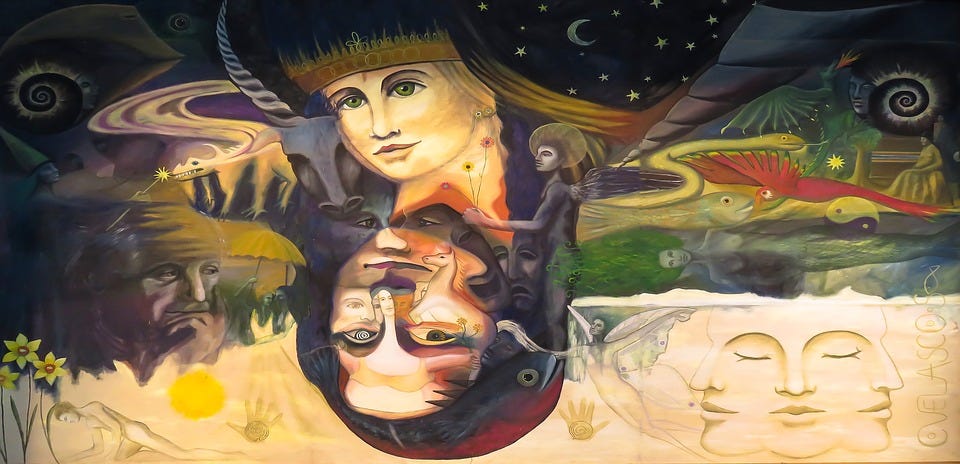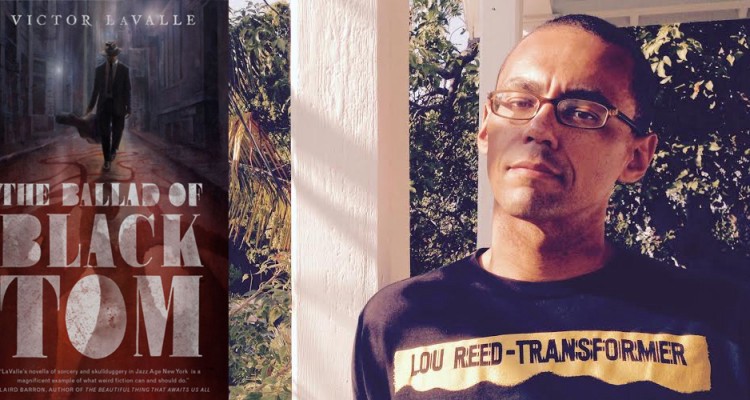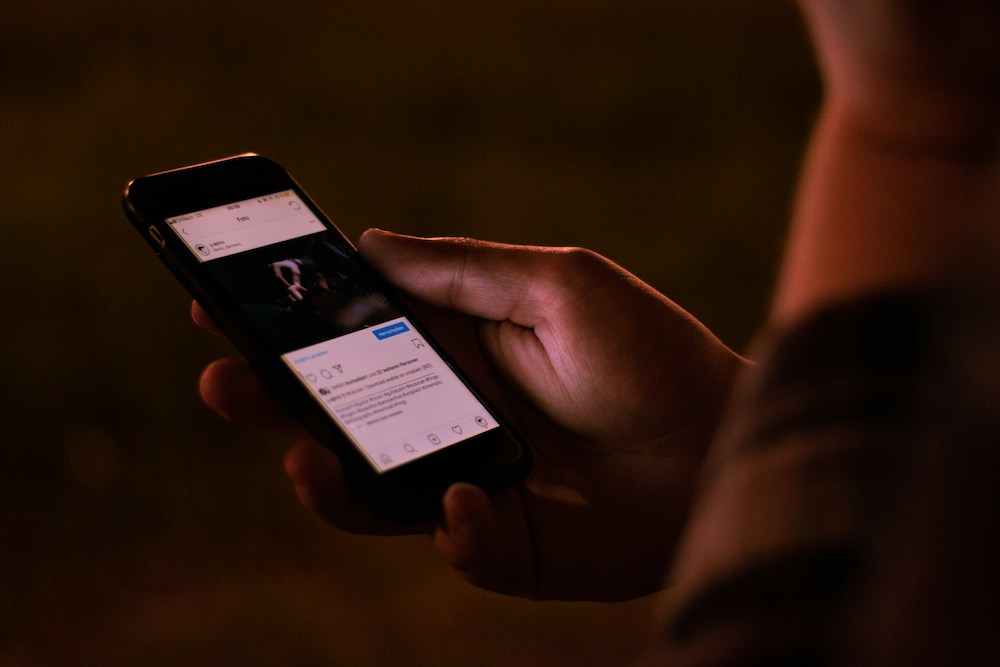essays
The Girl in the Cabinet (I Read What You Wrote and I Hate You)

by Melissa Chadburn

Last summer a friend sat on my kitchen counter and said, “You just always make things about you.” The feelings that followed…I so hated myself at that moment. I was ashamed to be there, taking up space, too much space in a friendship, in a workspace, at a meeting, in the board room, in the classroom, in the bedroom, at the party. A montage of myself just talking and talking and talking surrounded by a sea of blank faces. Thought clouds above everyone’s heads as they leave the place with the people, God, she sure does talk about herself.
What I should have done is seen this as progress. I should have jumped up for joy and said, “Fuck yeah!” In 1994 I went with my foster brother to visit his mom, my former foster mother, and her new partner at work. They worked in an ad agency; we entered the board room he and I, and I gave a presentation on why they ought to take me back in. The presentation included ways I would contribute financially, and to the daily household tasks, and how I would be invisible.
The presentation included ways I would contribute financially, and to the daily household tasks, and how I would be invisible.
Now, to their credit, they never held me to that last promise, but invisibility is definitely a thing I’ve aspired to. Which absolutely contradicts all the personal essays I write. I guess in person I strive to be invisible, no problem, and on the page, I aspire to BOOM!
I recently read Meredith Maran’s, Why We Write About Ourselves. It’s a lovely compilation of interviews with twenty memoirists on why they choose to write about themselves. In it Edwidge Danticat says, “Welcome to my bathroom. I’m naked.” This is the shame part I was thinking of. Then she writes, “It feels to me as though there are people waiting around with knives, waiting to skewer me.”
***
I tried to kill myself once. At the time my brother was sending me letters about his stepmother calling him bakla, (“fag” in Tagalog). He said if he wanted to be called a fag he would’ve just stayed walking the halls of school. Until then I imagined my two brothers were living a life of snow and hot cocoa and fresh baked cookies, a life of sledding, and two parents in one warm cherished home. But there it was in my hands, proof of us on separate coasts, filling with hurt. I swallowed a half a bottle of Tylenol, and disappointingly awoke the next morning with absolutely no side effects. I felt every bit of every thing. Despite this sensitivity, like a dog or like a man who’d been shipped off to war, I was most known for being compliant and every moment I swallowed my opinion — something in me was blushing with anger and fear.
I swallowed a half a bottle of Tylenol, and disappointingly awoke the next morning with absolutely no side effects.
When I consider the difference between my experience in writing fiction and that of nonfiction I feel I have more freedom to be honest in my fiction. By that I mean there is no swallowing of my opinion in fiction. There is no me and there is no you. It’s just a world of words — a bridge from my imagination to yours.
I am in search of what Sue Monk Kidd refers to as “the common heart.” A phrase she originally learned from reading Ralph Waldo Emerson. “He described it as a place inside of us where we share an intrinsic unity with all humanity.” This is a thing I long for and seek to accomplish in my writing but sometimes I’m met with controversy.
When it comes to my essays, part of what I do is share ideas. I go places and tell people my ideas, or people read about them and they hate that. Because ideas are very very dangerous and should be limited to only a few people. Male people and wealthy people and white people, preferably. So these people who are dead set on hating me, they go to a reading and when I say, “Question gobbledygook!” There are people who come to see me with angry eyes and they raise their hand and they say, “You are an idiot! Goobledygook is what is good about this country and if you don’t like gobbledygook you should just leave!”
There is no swallowing of my opinion in fiction. There is no me and there is no you.
And then sometimes when I get home there will be emails written to me:
Dear Resting Bitch Face,
I read what you wrote about gobbledygook and I hate you. I hope you die in hell. I want to rape you.
This might sound extreme but, in Why We Write About Ourselves, Ayelet Waldman talks of an experience she had in publishing an essay about loving her partner more than her kids and getting hundreds and hundreds of emails. Some of them threatening, some saying she should “be shot” or deserved to die. Someone actually taped a note to their household gate that said, “Your children should be taken away from you.”
And just last year Amanda Hess, a journalist who writes about sex, published a piece, “Women Aren’t Welcome Here,” in Pacific Standard about a man who opened up a twitter account just to send death threats to her. One tweet read: “Happy to see we live in the same state. Im looking you up, and when I find you, im going to rape you and remove your head.”
Back in my life, I will get another email, an email from a magazine that I like with really smart people in it. It will be a rejection in response to my query on a piece I wrote about gobbledygook. A form rejection like: We appreciate the opportunity to read “The Secrets of Goobledy Gook,” but we feel it is not a good fit for Top Tier Journal 100 at this time.
And then I might scroll through Facebook and see all these cash and prizes being thrown at people. Small island awarded to Chief Operation Officer of Gobbledy Gook. Author of 101 Benefits of Gobbledy Gook receives MacArthur ‘Genius Grant.’ By this time I will be very tired and go to bed. My lover and I won’t have sex that night and I’ll think maybe it’s because I’m fat or smell funny, which will prompt me to stay up and wonder about all the ways I’m unlovable.
My lover and I won’t have sex that night and I’ll think maybe it’s because I’m fat or smell funny, which will prompt me to stay up and wonder about all the ways I’m unlovable.
Encouraging people to fight for what they believe in is an easy enough task. Having an unpopular opinion is a completely different thing. People don’t like you for it and when people don’t like you, you see their ugliest sides. Sometimes this side stares you in the face. Sometimes it’s a dozen quick sharp slashes — being shunned. People think this opinion dealing could be contagious. People who are your friends may not invite you places. People may stop calling you.
In WWWAO, Jesmyn Ward writes about a scene in her memoir in a cellar in the woods. Her editor kept pushing her, dig deeper. Of this experience she writes, “I finally realized what that cellar had taken on for me. All the feelings of self-loathing and worthlessness I had at that age were embodied in that cellar. It symbolized all the dark things that happened to me, things I thought I deserved because of the way I thought of myself at that time: as a young black woman in the South.”
There’s many reasons I love what she says here. The cellar reminds me of the child in the basement in Ursula Le Guin’s story “Omelas.” It also reminds me of an essay Ursula Le Guin once wrote called “The Writer on, and at, Her Work.” In it she writes:
And I found myself
in the dark forest, in silence.
You maybe have to find yourself,
yourselves,
in the dark forest.
Anyhow, I did then. And still now,
always. At the bad time.
When you find the hidden catch
in the secret drawer
behind the false panel
inside the concealed compartment
in the desk in the attic
of the house in the dark forest,
and press the spring firmly,
a door flies open to reveal
a bundle of old letters,
and in one of them is a map
of the forest
that you drew yourself
before you ever went there.
Aside from the experience of writing and existing, there is only one true reward and this too is an idea or more of a hope and the idea is this: For every doo doo ca ca angry face, for every email seething with hatred, for every gala or shindig to which you are not invited there is a child somewhere — a girl — and maybe she will pick up a book or peruse the internet and she will find your words. And in your words she will discover a world of the possible and she will climb out of the cabinet and she will put down the razor.









